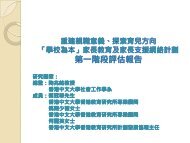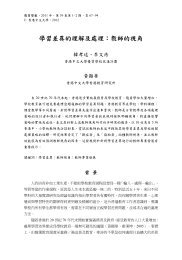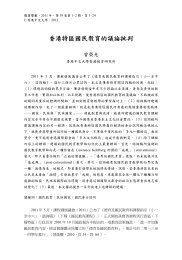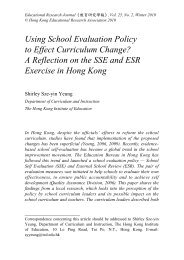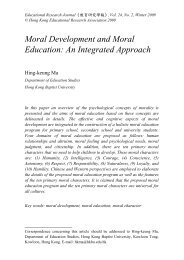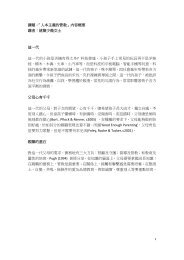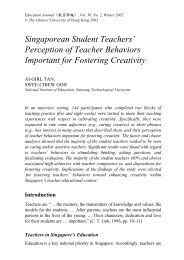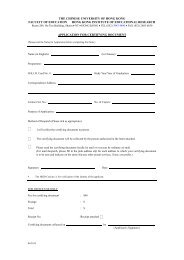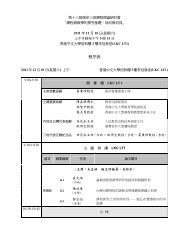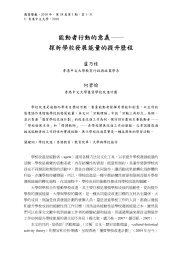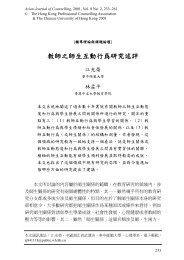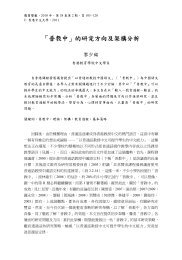Filial Therapy as a Cross-Cultural Family Intervention - The Chinese ...
Filial Therapy as a Cross-Cultural Family Intervention - The Chinese ...
Filial Therapy as a Cross-Cultural Family Intervention - The Chinese ...
You also want an ePaper? Increase the reach of your titles
YUMPU automatically turns print PDFs into web optimized ePapers that Google loves.
Daniel S. Sweeney, Catherine Skurja<br />
play sessions themselves. Since the focus of filial therapy is to train parents<br />
in the use of child-centered play therapy skills <strong>as</strong> a means to establish and<br />
strengthen the parent-child relationship, the parent-child play sessions<br />
represent the core of the training process. Parents must be convinced that<br />
play therapy is a legitimate intervention, and that these skills can be taught<br />
and used by parents. Some parents report that they already play with their<br />
children and therefore question the validity of training which revolves around<br />
play. It becomes imperative to educate parents about the meaning of<br />
children’s play, to explore the value and efficacy of play therapy, and to<br />
stress the difference between “regular” parent-child play and the special<br />
play times that are a part of the filial therapy training process.<br />
During the 30-minute parent-child play sessions the focus is on the<br />
connection between parent and child. This is more important than the content<br />
of the play time. <strong>The</strong> parent’s goal is to understand the child’s perception of<br />
the world, enter into that world, and provide the child with the experience of<br />
being understood by the parent.<br />
While it is often tempting to interpret the play, parents should connect<br />
with their children and simply enjoy the interaction and the play. Some<br />
children will use the parent-child play times to express their view of what is<br />
happening at home or school. At these times the parent should not become<br />
judgmental or interpret the play to the child. Rather, the parent should view<br />
the play <strong>as</strong> a means for the child communicating his or her concerns to the<br />
parent in a way that is safe for the child to do so. This results in enhanced<br />
communication and provides the opportunity for the parent to more clearly<br />
understand the child. Parents can use that information at a later time, outside<br />
the play session, <strong>as</strong> appropriate, to intervene on behalf of the child.<br />
Applications<br />
It is proposed that filial therapy h<strong>as</strong> both practical and research<br />
applications for the Asian mental health community. Many readers may<br />
200



